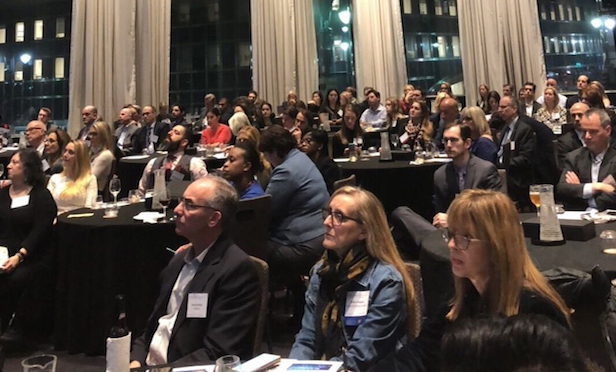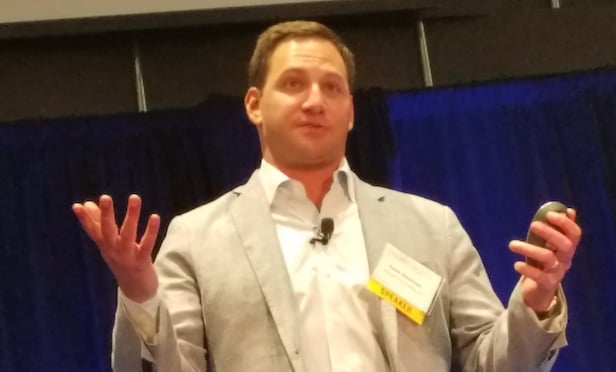
NEW YORK CITY—“In a nutshell, Blockchain is just today's database 2.0,” said Deloitte Consulting real estate practice manager Kevin Shtofman. “Think of it as a general ledger that has transaction histories, purchases, sales of assets, finance, data that sits up there on a chain of blocks.”
Each block of information has a unique 32-character, alphanumeric code. Each user has a private 32-character alphanumeric password. Today, it would take a couple of days to hack an eight-letter password. But to hack a blockchain would take 700 million years, according to Shtofman.
People inputting on a blockchain have real-time, simultaneous access. Without the private password to get onto the chain, no one can add information to a transaction. It is a completely decentralized system, yet its transparency of public history ensures accountability and trustworthiness, reducing risk of fraud and abuse.
Blockchain is related to cryptocurrencies, such as Bitcoin and Ethereum, because it is the technology that allows these digital currencies to exist. With cryptocurrencies, blockchains maintain transaction ledgers with a secure, peer-to-peer network, without regulation of a governmental entity.

The technology well suits the real estate industry, Shtofman told the room filled with CoreNet Global New York City members at the Grand Hyatt in Midtown. The non-profit provides professional development, education and networking for people working in corporate real estate.
Blockchain can gather and store data, organized in a way that is accessible, transparent, and easy to analyze. It can also transfer value, allowing the buying or selling of assets quickly, efficiently, accurately and securely.
“Anyone who has ever been to a land use office can see first-hand with the paper filing cabinets and long lines, how hard it is to get a clear registry and land title,” said Shtofman. “It is really tough to do. It takes a lot of work.”
Sweden is putting the entire country's land use database on a blockchain. They have already completed this for one city and are expanding it across the country. “If every parcel of land in Sweden is sitting on a blockchain, it's going to make transactions in real estate much easier,” he said.
In the US for the near future, most intermediaries involved in real estate transactions will still be needed during the writing of a contract. Brokers will still be important to determine required elements of the contract. Title companies will still be critical to verify initial title at the very beginning. Appraisers will need to assess property. However, Shtofman pointed out once all of those assets are on a blockchain, once the agreement is signed, almost everything can happen with machine readable technology. Transactions will close much more quickly.
“If you can condense transactions to close from 60 days to six days, you can now convince brokers, title companies, appraisers, any intermediary to take a potential discount on their fees because now the volume can go way up,” he explained. “They can do a ton more transactions in the same period of time.”

However, in New York the real estate market tends to be more complicated with regulatory requirements, tenant protections, and different development incentives. Thus, blockchains would need to be developed specific to New York real estate. With blockchains, the more redundant, mundane gathering and manipulation of data will be more automated, allowing employees to focus on the more complex and exciting challenges in the transactions. “You spend less time researching the data you need and more time analyzing the data to make real decisions.”
Shtofman, who also has the title of national blockchain real estate lead at Deloitte, says the technology most likely will be used first in back-office work. As the real estate industry has rarely been early adapters of technology, he predicts it will initially use blockchain where it has been proven in other industries such as inter-department transactions and cash reconciliation records. It will then move outward into customer-facing transactions.
© Touchpoint Markets, All Rights Reserved. Request academic re-use from www.copyright.com. All other uses, submit a request to [email protected]. For more inforrmation visit Asset & Logo Licensing.







